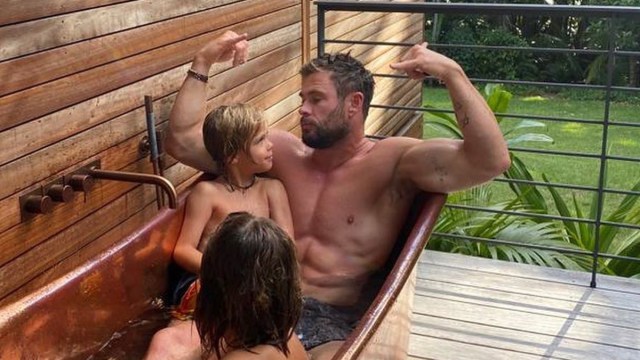Chris Hemsworth learned he has genes present in 2-3% of the population that have been linked to increased risk for Alzheimer’s
While filming his new National Geographic show Limitless, Chris Hemsworth learned some life-altering news: He has genes that may put him at higher risk of developing Alzheimer’s disease during his lifetime.
The series debuted on Disney+ on Friday, and shows the actor undergoing various tests and stunts to determine the physical limits of his body. In one episode, called “Memory,” he undergoes genetic testing and learns that he has two copies of the gene APOE4, which has been linked by scientific research to an increased risk of developing Alzheimer’s. Hemsworth has one copy of the gene from his mother, and one copy from his father. About 25 percent of people have a single copy of the gene, but a 2021 National Institutes of Health study showed that just 2-3 percent of people carry two copies.
Hemsworth told Vanity Fair that filming the series made him realize how precious time with his family is, and that he’s taking a break to stay in Australia with his wife, Elsa Pataky, and their three kids, 10-year-old India and 8-year-old twins Sasha and Tristan.
“Doing an episode on death and facing your own mortality made me go, ‘Oh God, I’m not ready to go yet.’ I want to sit and be in this space with a greater sense of stillness and gratitude,” he explained. “And then you start talking about kids and family and going, ‘Oh my God, they’re getting older, they’re growing up and I keep slapping another movie on top of another movie.’ Before you know it, they’re 18 and they’ve moved out of house, and I missed the window.”
Hemsworth added, “It really triggered something in me to want to take some time off. And since we finished the show, I’ve been completing the things I was already contracted to do. Now when I finish this tour this week, I’m going home and I’m going to have a good chunk of time off and just simplify. Be with the kids, be with my wife.”
He also explained how the situation has changed how he feels about saying no to more work.
“I felt a sense of guilt when I would say no to a film before. There was a part of me that was like, ‘Who do you think you are? You’ve never had this opportunity and here it is! You’re going to let it go and pass you by?’ Now I’m much more comfortable saying no and much more at ease with it all,” he said. “I’m very thankful for that. I’m glad I’m not having this conversation 20 years from now and my kids have grown up and left my home.”
